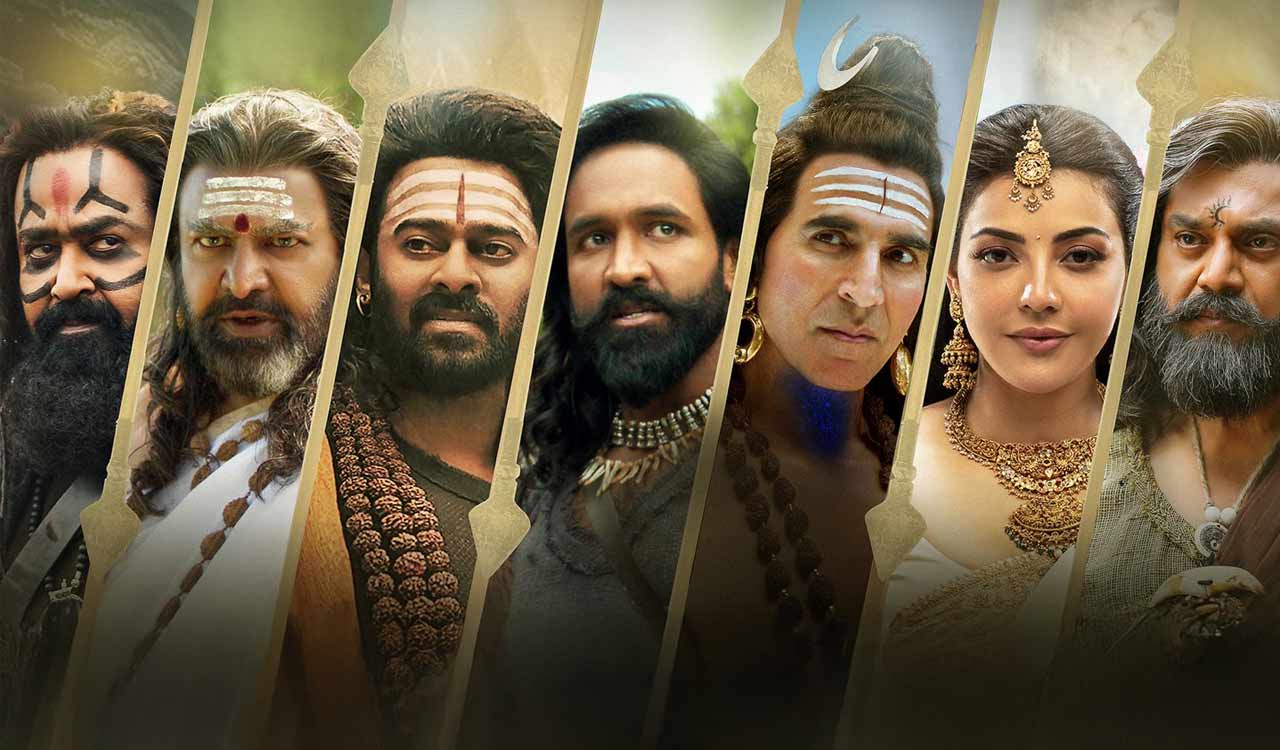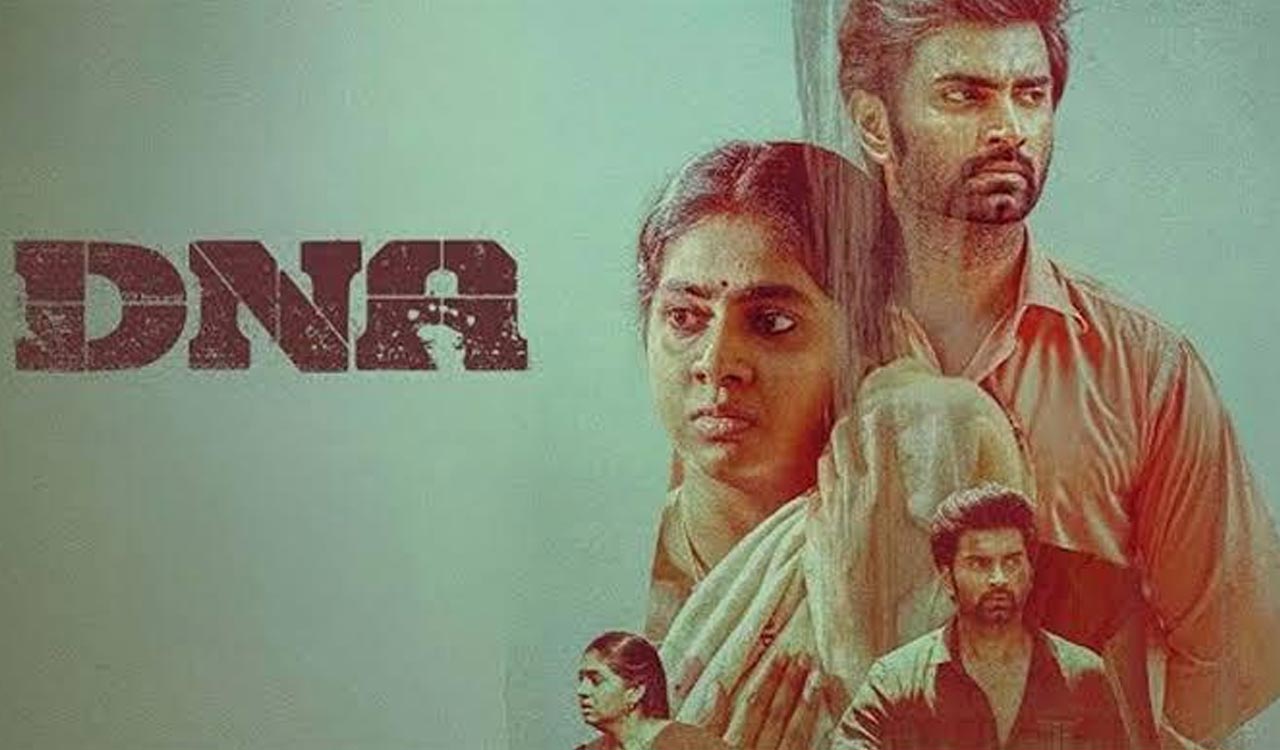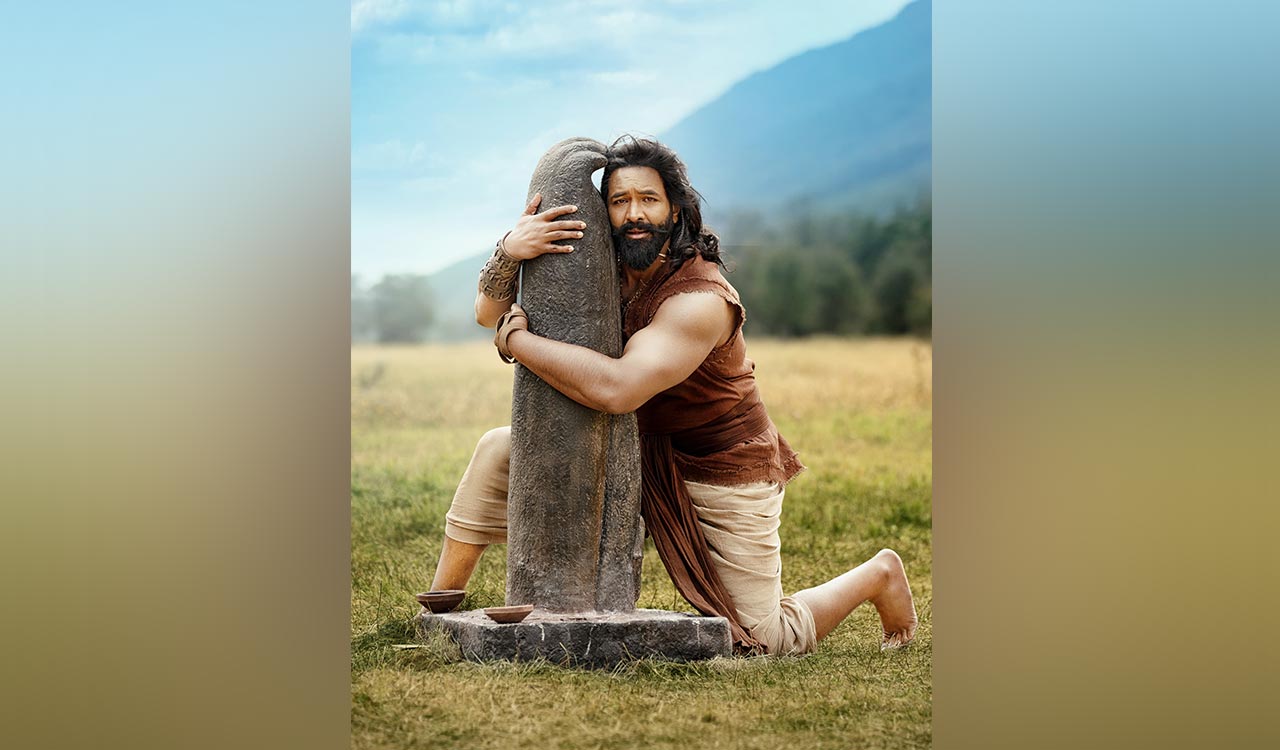Kannappa Review: A grand tale that misses its soul
Kannappa had all the ingredients for a spiritually moving cinematic experience, a timeless legend, a rich setting like Sri Kalahasti, and a powerful moral. But in trying to make it larger-than-life, the film forgets what made the real Kannappa’s story special: simplicity and raw love for God.

Hyderabad: Kannappa, the ambitious devotional drama starring Manchu Vishnu, aims to bring the legendary tale of Bhakta Kannappa to the silver screen with grandeur. But somewhere between the high production value and star-studded cameos, the film loses the very essence of what made Kannappa’s story immortal: simplicity, raw devotion, and soul-stirring emotion.
Who Was Bhakta Kannappa?
For those unfamiliar with the legend, Bhakta Kannappa, originally named Thinnadu, was a tribal hunter born into the Chenchu community in present-day Andhra Pradesh, near Sri Kalahasti, a temple town known for housing the sacred Vayu Lingam, representing the air element among the Pancha Bhoota Lingas of Lord Shiva.
The legend goes that one day, while hunting, Thinnadu stumbled upon the linga in the forest and began worshipping it in his own innocent and unconventional ways. He offered meat and water from his mouth, actions shocking to the orthodox, but accepted by Shiva because of Thinnadu’s pure heart.
In a supreme test of devotion, Thinnadu noticed blood flowing from one eye of the linga. Without hesitation, he plucked out his eye and placed it on the idol. When the second eye began to bleed, he prepared to sacrifice his remaining eye as well. But before he could go blind, Shiva appeared, stopped him, and granted him moksha, naming him one of his greatest devotees.
This powerful tale of love, surrender, and raw faith is still remembered and celebrated at the Srikalahasteeswara temple, where the Vayu Lingam is worshipped to this day.
Film Story & Review: Where Faith Meets Fantasy, Not Always Successfully
The film Kannappa tries to show this transformation, but it takes far too long to get there. The first half spends unnecessary time on Tinnadu’s (Manchu Vishnu) disbelief in God, a stretched-out romantic track with Nemali (Preity Mukundan), and a chaotic war sequence with an antagonist Kala Mukha. Unfortunately, this entire segment feels disconnected, loud, and sometimes even directionless. The background score overwhelms rather than enhances the experience, and the scenes feel more like a fantasy serial than a rooted devotional film.
Only after the interval does the film settle into its actual story, Tinnadu’s path to becoming Bhakta Kannappa. This transformation, the build-up of emotion, and the final sacrifice are handled with more clarity and emotional weight. The last 30 minutes truly redeem the film to some extent, especially with the entry of Prabhas, which gives the narrative a much-needed boost. But by then, it feels too little, too late.
Performances: Passion Present, but Not Consistent
Manchu Vishnu tries hard, and while there are flashes where he embodies Kannappa’s devotion well, he doesn’t quite deliver the depth the role demands throughout. Preity Mukundan looks good and performs sincerely, but her modern wardrobe as a tribal queen is completely jarring and takes away the believability of her character.
Veterans like Mohan Babu (as Mahadeva Shastri) shine, while others like Sarathkumar, Madhoo, Brahmaji, Devaraj, Mukesh Rishi, and Raghu Babu provide stable support. Cameos by Mohanlal and Prabhas are impactful, short, but sweet.
One of the biggest disappointments is the underutilisation of Brahmanandam. Known for lighting up screens with his presence, his character Pilaka is forgettable, barely given any screen time or narrative weight. Fans who came expecting to see his trademark timing and humour will walk away puzzled, as the character adds neither comic relief nor emotional depth. It feels like a missed opportunity to use a legend meaningfully.
Similarly, Sapthagiri’s character is so poorly written that many might not even realise he was in the film at all.
Akshay Kumar as Lord Shiva is a surprising casting choice. Though sincere, his portrayal doesn’t quite match the calm strength associated with Shiva; something more divine and serene was expected. On the other hand, Kajal Aggarwal as Parvati is graceful and well-cast.
Young Avram, Vishnu’s son, steals the show in the flashback sequences with his natural performance and innocent expressions, though his accent is a bit of a mismatch. Ariana and Viviana, the twin daughters of Vishnu, were adorable in the song and added a personal touch with their vocals.
Technical Aspects: Grand Vision, but Misplaced Priorities
Director Mukesh Kumar Singh, known for the popular Mahabharat (2013) TV series, had the right foundation to create something timeless. But in trying to package Kannappa as a pan-India spectacle, he seems to have lost touch with the soul of the story. The tone often slips into over-dramatisation, and some scenes feel like they belong more to a television soap than a deeply spiritual film.
The visuals by Sheldon Chau are lush and technically polished, but they lack a sense of rootedness in time. The over-green, polished forest settings detract from the raw, earthy feel necessary for a story set in ancient tribal times. Music by Stephen Devassy is good in parts, but the loud and inconsistent background score becomes a major distraction.
The decision to romanticise characters and add fantasy-style songs hurts the film’s devotional core. A simpler, more grounded approach might have made Kannappa a classic. Instead, we’re left with a spectacle that shines only in parts.
Final Verdict
Kannappa had all the ingredients for a spiritually moving cinematic experience, a timeless legend, a rich setting like Sri Kalahasti, and a powerful moral. But in trying to make it larger-than-life, the film forgets what made the real Kannappa’s story special: simplicity and raw love for God.
There are moments of brilliance, especially in the climax, but the journey there is uneven. Watch it if you’re interested in mythology and devotion, but keep expectations in check. The soul is present, but buried beneath layers of unnecessary gloss.
Related News
-
Generic Ozempic versions to launch in India, prices to drop by 50 to 70%
13 mins ago -
Retired LB Nagar officer falls victim to Rs 98,888 digital arrest scam
28 mins ago -
Hyderabad: 17-year-old girl reported missing after visit to Secunderabad
43 mins ago -
SCR cancels several trains on Secunderabad–Kazipet route in May
60 mins ago -
Azerbaijan accuses Iran of drone strikes in Nakhchivan
1 hour ago -
Musi Jan Andolan urges Meenakshi Natarajan to stop Gandhi Sarovar Project
2 hours ago -
Series of fire accidents reported across Hyderabad as summer heat rises
2 hours ago -
VJIM to host 150 industry pioneers at FICCI’s flagship CFO Summit 2026 in Hyderabad
2 hours ago




